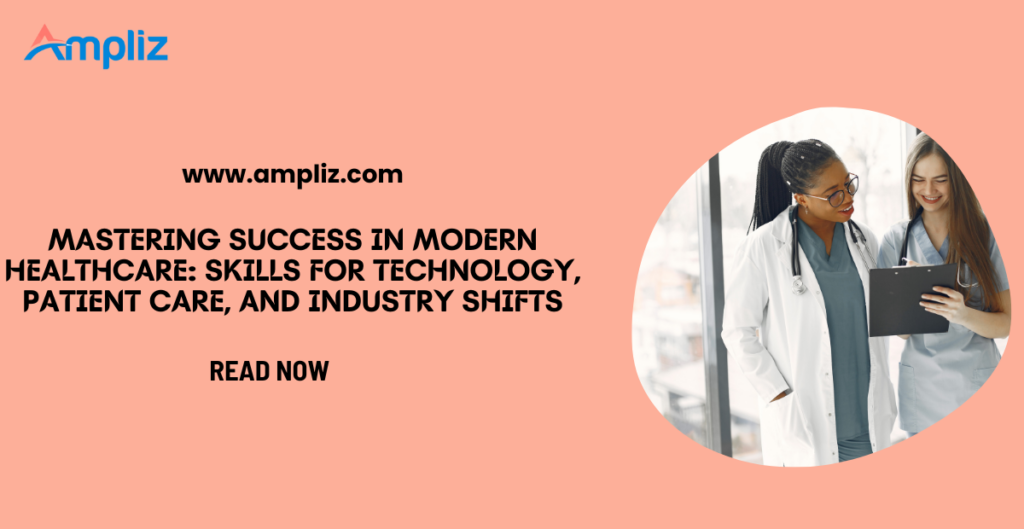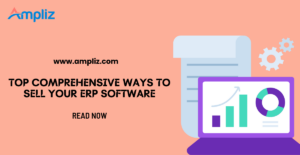Healthcare in 2025 demands more than just expertise. It needs versatility, and that’s where you come in. You navigate telehealth like a pro and know when data drives decisions. Patient interactions call for empathy, not robots.
You’ll adapt to changes faster than ever because industry shifts don’t wait around. Collaborate across fields without missing a beat.
Ready to step up your game? Let’s explore the skills that set you apart, making waves now and setting trends tomorrow. From regulatory compliance to proactive education, you’re about to master it all.
Curious? Keep reading – you’ll find something worth your while.
The Hidden Power of Patient-Centric Communication in Modern Healthcare
As a healthcare professional, how you engage with patients can make or break your career. In modern practice, the art of communication isn’t just about conveying information. It’s about understanding patient needs and building trust.
Technology enables streamlined interactions, but empathy forms the connection. Whether through telehealth or in-person consultations, clear communication enhances patient satisfaction and adherence to treatment plans.
Active listening reveals more than symptoms; it unveils underlying concerns often left unspoken. By prioritizing this skill set, you create a supportive environment fostering improved outcomes and patient loyalty – essentials for thriving amid today’s rapid changes in healthcare dynamics.
Adapting To Industry Changes: Continuous Learning in Healthcare
A peculiar aspect of the medical industry is that it moves fast. This movement is driven specifically by new research findings and tech innovations that make care delivery easier and treatment approaches more effective. To thrive, healthcare professionals must embrace adaptive learning strategies, ensuring their skills align with emerging standards.
Knowledge isn’t static; it evolves rapidly alongside technological advancements like AI-assisted diagnostics and telehealth platforms. Mastery of these tools requires continuous education – an essential component for staying relevant.
Lest we forget, formal training programs are valuable resources in this pursuit. For instance, an EKG/Phlebotomy Diploma equips you with critical skills that improve patient outcomes while opening doors to diverse career opportunities. Investing in ongoing learning ensures you’re prepared to meet challenges head-on, propelling your success within this dynamic field.
Navigating Telehealth: Tools and Techniques for Better Virtual Care
Digital transformation in healthcare is increasingly shifting patient interactions to screens. As this shift accelerates, mastering telehealth becomes crucial. Effective virtual consultations rely on both technological proficiency and nuanced communication skills.
Adapting to remote platforms also involves understanding their capabilities – from secure video conferencing to seamless electronic health records integration. Success depends not only on leveraging these tools but also on maintaining the human touch that defines quality care.
Professionalism, combined with empathy over digital mediums, assures patients they receive attentive service despite physical distance. Familiarity with diverse software enhances your ability to provide accurate diagnoses and efficient follow-ups. Telehealth’s landscape may change rapidly, yet those who embrace its nuances find new avenues for delivering impactful care.
Leveraging Data Analytics for Smarter Clinical Decisions
In a world where data reigns supreme, healthcare relies on analytics to elevate clinical decisions. This approach transforms raw information into actionable insights that improve patient care. It helps you:
- Identify patterns in treatment outcomes.
- Optimize resource allocation and reduce costs.
- Enhance personalized medicine approaches.
- Monitor patient populations for early intervention opportunities.
Such capabilities empower practitioners to foresee potential issues and adapt treatments accordingly. The impact is profound – patients benefit from targeted therapies, and institutions optimize operations more effectively.
Embracing data-driven strategies helps businesses within the healthcare sector anticipate needs and respond proactively. Professionals equipped with these analytical tools find themselves well-prepared to navigate complexities while fostering innovation in care delivery practices.
Emotional Intelligence as a Pillar in Patient Care Strategies
Effective patient care hinges not only on technical expertise but also emotional intelligence. Understanding and managing emotions within healthcare interactions improve outcomes significantly. Professionals adept at empathy can better support patients, offering comfort during vulnerable moments.
Recognizing non-verbal cues and adjusting responses accordingly strengthens the provider-patient relationship, fostering trust that enhances compliance with treatment plans. In high-stress environments like hospitals or clinics, these skills aid in conflict resolution among team members as well.
This skill is incredibly crucial for those eying most of the top healthcare careers, where navigating human complexities remains vital to achieving excellence.
Bridging the Gap with Cross-functional Team Collaboration
Working in a healthcare facility often involves more than just individual expertise. Collaborative efforts across disciplines ensure holistic patient care and seamless workflow management.
Integrating diverse skills from various departments enhances problem-solving capabilities, allowing for comprehensive treatment approaches tailored to unique needs. Teams adept at sharing knowledge can address complex medical challenges efficiently, leading to better outcomes.
Furthermore, effective communication within cross-functional groups minimizes misunderstandings and promotes a culture of continuous improvement – a hallmark of progressive healthcare institutions focused on quality service delivery.
Staying Ahead of Regulatory Standards without the Hassle
Perhaps more of a mindset than a skill, navigating healthcare regulations requires diligence and foresight. Regulations change, and staying informed helps you maintain compliance effortlessly.
Some Tips for Staying Ahead:
- Regularly review policy updates from trusted sources.
- Utilize digital tools for efficient documentation management.
- Engage in continuous professional education to keep skills sharp.
- Foster an organizational culture that prioritizes regulatory adherence.
These strategies ease the burden of compliance, ensuring seamless operations while reducing potential legal risks. Proactive measures not only safeguard institutions but also build a reputation for reliability and integrity in patient care delivery.
Incorporating healthcare credentialing software into compliance strategies simplifies managing staff qualifications, tracking expirations, and ensuring adherence to regulatory standards. These tools automate critical processes, reducing administrative burden while safeguarding institutional integrity and compliance. Proactive measures not only ensure seamless operations but also build a reputation for reliability and excellence in patient care.
Educating Patients: An Ongoing Mission Beyond Diagnosis
Patients feel empowered when they understand their health conditions and treatment options. Effective patient education involves clear communication tailored to individual needs, enhancing engagement and adherence to medical advice.
Providing resources like informational brochures or digital platforms encourages proactive involvement in personal care. This education also demystifies complex procedures, reducing anxiety while fostering trust between healthcare providers and patients.
Informed patients are more likely to participate actively in their healing processes, leading to improved outcomes and a sense of control over their well-being. As such, prioritizing educational initiatives remains a cornerstone of compassionate healthcare delivery.
Integrating AI to Transform Routine Healthcare Practices
Seriously shaking things up in the tech realm over the past couple of years, AI has turned out to be incredibly useful in healthcare delivery. This innovative tool streamlines processes and enhances diagnostic precision.
Some AI Integration Opportunities:
- Automate administrative tasks like scheduling or billing.
- Assist radiologists with image analysis for faster results.
- Predict patient risk factors through comprehensive data assessment.
Implementing these practices offers notable benefits, from reducing staff workload to increasing accuracy and speed in diagnoses. Moreover, predictive analytics driven by AI helps customize patient treatment plans effectively.
As technology evolves, embracing artificial intelligence ensures you remain at the forefront of modern healthcare advancements while improving operational efficiency and care quality.
Ensuring Quality Outcomes by Embracing Continuous Feedback
Last but certainly not least, is one very important element of improving care: feedback! Integrating continuous feedback loops within healthcare settings fosters a culture of improvement.
Listening to patients and staff uncovers areas needing attention while reinforcing effective practices. This ongoing dialogue allows for timely adjustments in procedures, enhancing service delivery and patient satisfaction.
Collecting insights through surveys or digital tools ensures no valuable information slips through the cracks. By prioritizing this engagement, healthcare organizations achieve excellence in quality outcomes – solidifying their commitment to exceptional patient care.
Mastering modern healthcare skills is essential for success in this fast-paced industry. As you adapt to technological advances and patient-centric approaches, your commitment to growth ensures exceptional care delivery and professional achievement. It also warms you up in anticipation of future innovations.


